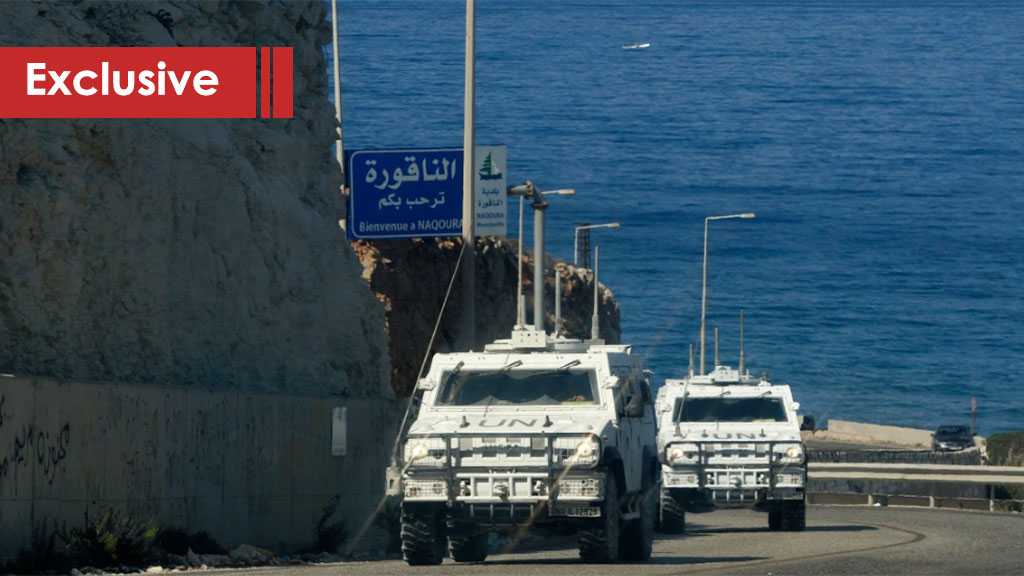Lebanon Confirms Its Rights To Confront ’Israel”… What Are Its Power Elements?

Charles Abi Nader
Apart from the political contending that preceded and accompanied the administrative-legal path of the Lebanese Maritime Borders Amendment Decree [6433], which also takes its constitutional and diplomatic path [as soon assumed] to the United Nations, it can be said that Lebanon - the government and the institutions - through its delicate and decisive decision to amend that decree, has imposed itself as a powerful player in the game of regional and international interests and conflicts.
The statement that Lebanon has imposed itself as a powerful player in the game of international interests and conflicts may be misplaced or inappropriate if we compare it to the crisis situation in Lebanon today, and what it is experiencing in terms of what looks like a financial, economic and social collapse, in addition to its fragmentation and political imbalance. But in reality, despite all the tragedies that have passed through Lebanon, its position has brought the highest level of challenge to many regional and international players.
First of all, the field of interest in which Lebanon has created itself by amending the decree defining its pure economic waters, is almost the entire eastern Mediterranean region, which is apparently very rich in gas and oil, between Syria and Turkey eastward and northward, between the occupied Palestine and Egypt southward and southwestward, and between Cyprus, Turkey and Greece westward. We are talking here about a maritime field, which is currently experiencing a delicate conflict and danger over the division and determination of the exclusive economic waters of the aforementioned countries, not far from the possibility that it will cause a military confrontation, such as between Greece and Turkey or between Cyprus and Turkey.
On the other hand, while ‘Israel’ is considered Lebanon's fiercest opponent in this maritime border dispute, and due to its urgent need to exploit the huge wealth from the occupied Palestine's coasts and to accelerate and advance its partnership with the Forum of Eastern Mediterranean States [Egypt, Cyprus and Greece], which is based on the initiation of the extraction and supply of gas and since it has completed the completion and preparation of the administrative, technical and legal structure for the initiation of the exploration in the Karish border field with Lebanon, which was affected by the aforementioned Lebanese amendment in more than half of its area, it will consider the Lebanese position regarding the amendment of its maritime rights in the south as a declaration of war against it, which would call for a non-simple reaction, not only as it threatened to stop indirect negotiations with Lebanon.
At a time where Lebanon is experiencing this almost complete collapse at all levels, and where most of the external parties involved in the conflict or the file contribute to deepening the collapse by exerting a lot of additional pressure on Lebanon to force it to surrender or submit to the maritime or other border file, and as these parties consider that the Lebanese position is supposed to be lenient and lax, in other words, disregarding what they see as their rights, so that they can make quick use of their needs before its inevitable collapse, Lebanon declares this strong position.
Therefore, the fundamental question remains: On what does Lebanon depend in this powerful position? And what are Lebanon’s power elements in the delicate game of defiance that it got itself involved in?
Of course, the consistent position of His Excellency the President of the Republic as a key official actor in guiding the negotiation process has been instrumental in amending the decree and establishing Lebanese maritime rights by fully supporting and embracing the perspective of the experts in the Lebanese Armed Forces and the specialists of the negotiating delegation in the demarcation process, which highlighted in a scientific-legal manner the correct maritime borders, that must be at first: A valid document for deposit with the United Nations and relevant institutions of the international community, and secondly: a platform for indirect negotiation with the enemy and for the demarcation and precise determination of the border based on it.
On the other hand, the legal and technical point of view presented and proved by the Lebanese Army in scientific details, from which its position was clear and decisive, regarding the necessity of completing indirect negotiations with the enemy on its basis, and in terms of the futility of its completion without it, proves without any doubt that the military, as a matter of national responsibility and duty, will be an essential party in fixing, protecting and supporting the amendment decision, with all possible military or security implications, dangers or repercussions.
Also, it is absolutely impossible to overlook the important role of the unified internal Lebanese position on the amendment, which was finally demonstrated by all concerned, official, partisan and political parties, and despite some initial reservations, which were in good faith in order not to lose the opportunity of demarcation and to benefit from the wealth as soon as possible, due to the urgent need for it today, this united position in terms of cohesion and non-division was essential in confirming the Lebanese decision to amend against all external parties.
In the end, the decisive role remains for the resistance, with its deterrent capabilities and balance of force against the ‘Israeli’ enemy, which is the main foundation in stabilizing and protecting the delicate, sensitive and bold Lebanese position, in terms of modification in general, and in terms of its sensitivity to hit the center of the Karish field, which ‘Israel’ considers to be under its control [within the areas occupied in the Palestinian waters], which had completed all appropriate measures to initiate exploration and exploitation of its wealth, with possible implications and developments, that will produce a provision that the enemy will regard the official Lebanese amendment to the decree as war or targeting what it claims to be its rights. As the Resistance has always stated, it is behind the Lebanese government in supporting and protecting what the latter determines in terms of national rights, land or maritime borders or the borders of Lebanese sovereignty, thus it [the Resistance] will, with its qualitative capabilities, remain the most powerful and solid safety valve for the protection, maintenance and stabilization of these national rights.
Comments




